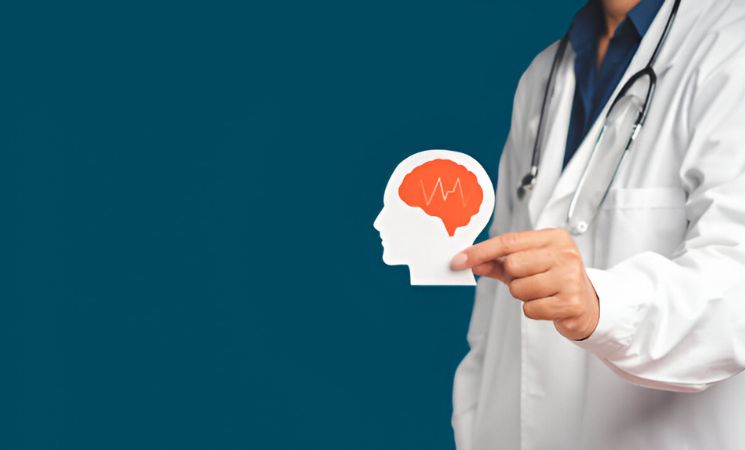Have you ever wondered about the differences in treatment options for narcolepsy vs epilepsy? Both are neurological disorders, yet they require distinct approaches to treatment.
Narcolepsy, a sleep disorder, primarily affects sleep-wake cycles. Epilepsy, a seizure disorder, impacts electrical activity in the brain.
Understanding these differences can help improve management and quality of life for those affected.
If you’re eager to learn more about how each condition is uniquely treated, continue reading to explore the specifics of narcolepsy vs epilepsy.
Symptoms of Narcolepsy and Epilepsy
Both narcolepsy and epilepsy share some common symptoms.
This includes excessive daytime sleepiness and fatigue.
However, there are several distinguishing features that can help differentiate between the two disorders.
Narcolepsy Symptoms
This is a chronic neurological disorder characterized by overwhelming daytime drowsiness and sudden attacks of sleep.
Some other symptoms of narcolepsy include:
- 1. Excessive Daytime Sleepiness (Eds)
- 2. Cataplexy
- 3. Sleep Paralysis
- 4. Hypnagogic Hallucinations
Epilepsy Symptoms
The symptoms of epilepsy can vary greatly depending on the type and severity of seizures.
Some common indicators include:
- 1. temporary confusion
- 2. uncontrollable movements
- 3. loss of consciousness or awareness
- 4. staring blankly into space
- 5. psychic symptoms, such as fear or anxiety
Seeking medical attention and proper diagnosis is crucial for both disorders, as they require different treatment approaches.
Treatment Options for Narcolepsy
Due to the unique nature of each disorder, treatment options for narcolepsy differ significantly.
Here are some of them:
Stimulants
These are often prescribed as a part of health management for narcolepsy. This is to combat excessive daytime sleepiness. These drugs help improve alertness and overall function during daytime activities.
Besides medication, lifestyle changes can aid in managing symptoms. This includes maintaining a consistent sleep schedule. Regular exercise and relaxation techniques are also useful supplements.
This is to enhance the quality of life.
Selective Serotonin Reuptake Inhibitors (SSRIs)
These are used to treat symptoms like cataplexy in narcolepsy. These medications work by altering serotonin levels in the brain.
This helps to improve mood and reduce sleep disturbances. Incorporating SSRIs into patient care can help manage the emotional and psychological aspects of narcolepsy.
Additionally, a doctor may recommend a combination of medication and lifestyle adjustments for comprehensive patient care.
Sodium Oxybate (Xyrem)
Sodium oxybate, also known by its brand name Xyrem, is a medication used for treating narcolepsy symptoms.
It is particularly effective in reducing cataplexy and improving nighttime sleep quality. By enhancing deep sleep stages, sodium oxybate helps patients feel more rested.
This medication is typically taken in two doses at night. It is crucial for patients to follow their doctor’s instructions precisely.
Regular follow-up with healthcare providers ensures the treatment’s effectiveness and safety.
Antidepressants
These are sometimes prescribed to manage cataplexy and sleep paralysis symptoms in narcolepsy patients.
These medications can help stabilize mood and reduce unwanted sleep episodes during the day. By modifying neurotransmitter levels in the brain, antidepressants can minimize symptoms and improve daily functioning.
They are typically integrated with other treatment strategies for a more complete approach to care. Regular follow-ups with a healthcare provider ensure the effectiveness and safety of this treatment.
Adjustments in dosages may be necessary based on the patient’s response to the medication.
Lifestyle Changes
Lifestyle changes play an essential role in managing narcolepsy symptoms. Developing a regular sleep routine can help stabilize sleep patterns.
Taking strategic naps during the day aids in reducing sleepiness and improving alertness. Regular exercise contributes to better sleep quality and overall health.
Avoiding caffeine and heavy meals before bedtime can minimize disruptions to sleep. These modifications, combined with medical treatments, can significantly enhance the quality of life for narcolepsy patients.
Treatment Options for Epilepsy
Epilepsy treatment aims to control or reduce the frequency and severity of seizures. Below are some common approaches that may be used to manage and treat epilepsy effectively.
Anti-Seizure Medications
Anti-seizure medications are the cornerstone of epilepsy treatment. They work by stabilizing the electrical activity in the brain to prevent seizures.
Different medications may be chosen based on the type of seizures a person experiences. Consistent medication management is important to achieve the best outcomes.
These medications often require regular monitoring to ensure effectiveness and minimize potential side effects.
Seizure Surgery
Seizure surgery is a treatment option for people with epilepsy who do not respond well to medications.
The surgery aims to remove or alter parts of the brain where seizures originate. One of the benefits of seizure surgery is the potential for a significant reduction in seizure frequency.
This can lead to improved quality of life for those affected. Additionally, successful surgery may lessen the need for medication over time, minimizing side effects.
Ketogenic Diet
The ketogenic diet is an alternative treatment option for epilepsy. It involves consuming high-fat, low-carbohydrate foods. This diet changes the way the body uses energy, helping to reduce seizures.
Many people with epilepsy find it effective when other treatments don’t work. A healthcare professional should supervise any dietary changes.
Vagus Nerve Stimulation (VNS)
Vagus Nerve Stimulation or VNS is a treatment option for epilepsy.
It involves implanting a small device in the chest to send electrical signals to the brain. This helps reduce the frequency of seizures.
Patients may experience fewer or less severe seizures. The device is adjustable based on individual needs.
VNS is often used when medications do not provide enough relief.
Neurosurgery
Neurosurgery can be a vital option for managing epilepsy when other treatments fall short. It involves precision procedures to target the brain’s affected areas.
The goal is to reduce or eliminate seizures for improved daily life. Patients usually undergo extensive evaluation before surgery to identify specific seizure origins. Recovery and results can vary, but many experience fewer seizures afterward.
Neurosurgery is a significant decision, offering hope for a better quality of life.
Behavioral Therapy
Behavioral therapy is a supportive treatment for managing epilepsy. It focuses on identifying and changing negative thought patterns.
Patients learn coping skills and stress management strategies. These skills can improve emotional resilience and overall well-being.
Behavioral therapy often works alongside medication and other treatments. It can also help manage anxiety and depression related to epilepsy.
All About Narcolepsy vs Epilepsy
In conclusion, understanding the differences in treatment options for narcolepsy vs epilepsy is crucial for effective management.
Narcolepsy treatments focus on managing sleep-wake cycles and improving alertness, while epilepsy treatments aim to control seizures.
Both conditions require a tailored approach to meet the individual’s specific needs. Recognizing these differences helps in improving the quality of life for people with either condition.












